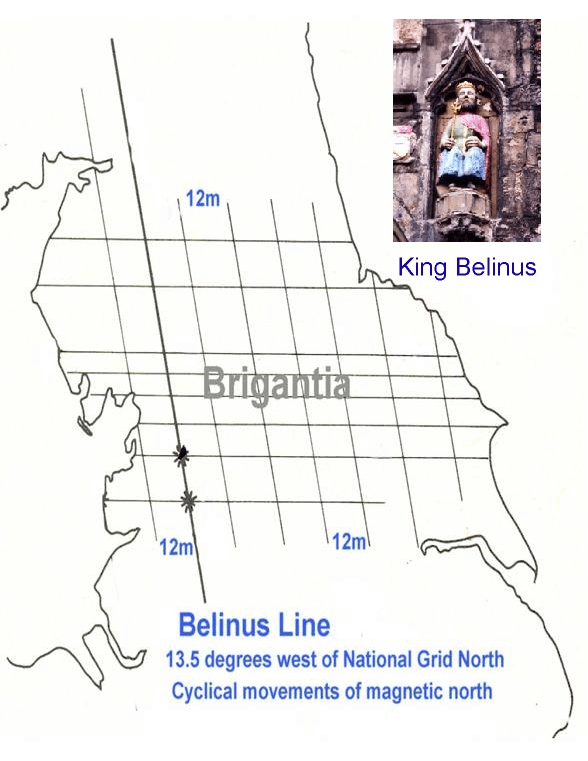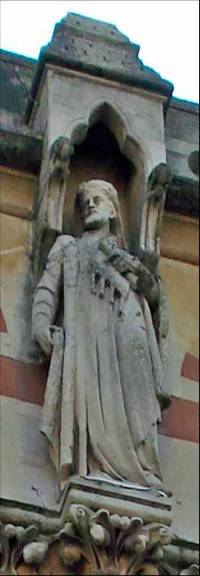


In 1974 Guy Raglan Phillips discovered a network of alignments in an area of northern England called in ancient times Brigantia. The lines were of the Watkins variety found on maps that linked ancient sites called leys. Phillips north-south parallel lines are 12 miles apart, 4 degrees west of the magnetic north axis, and he noticed that one in particular seemed pivotal to this whole system and formed the longest through route in Britain. He named it the Belinus Line after a legendary road building British King referred to by medieval monk Geoffrey of Monmouth in the History of the Kings of Britain.
Monmouth (c. AD 1100 –1155) writes that Belinus, a descendant of Trojan Brutus the mythical founder of Britain, ruled the kingdom of Cornwall, Kambria (Wales), and Loegria (England), from c. 380-363 BC and that he …"summoned workmen from all over the island and ordered them to construct a road of stones and mortar which would bisect the island longitudinally from the Cornish Sea to the shore of Caithness and should lead in a straight line to each of the cities on route". He decreed that all the temples in the major cities and the roads that led to them were sanctuaries, (where man was safe from attack or arrest) and that everyone should respect a Highway Code of laws laid down by his father Molmutius.

Although there is little historical evidence to support Phillips suggestion that his line follows the course of an ancient road, it does however connect ancient cities founded by the mythical bloodline of King Brutus such as Winchester, Carlisle and Perth. Interestingly Molmutius is historically associated with the rebuilding of Winchester and he features on the façade of the Guild Hall. Moreover, King Alfred the Great incorporated the Molmutine Laws into his own Saxon Laws of Britain and made Winchester the capital of England.
After researching Phillips’ line using modern detailed maps and computer programs I was able to more accurately define this British through–route and discover some remarkable connections in The Spine of Albion.